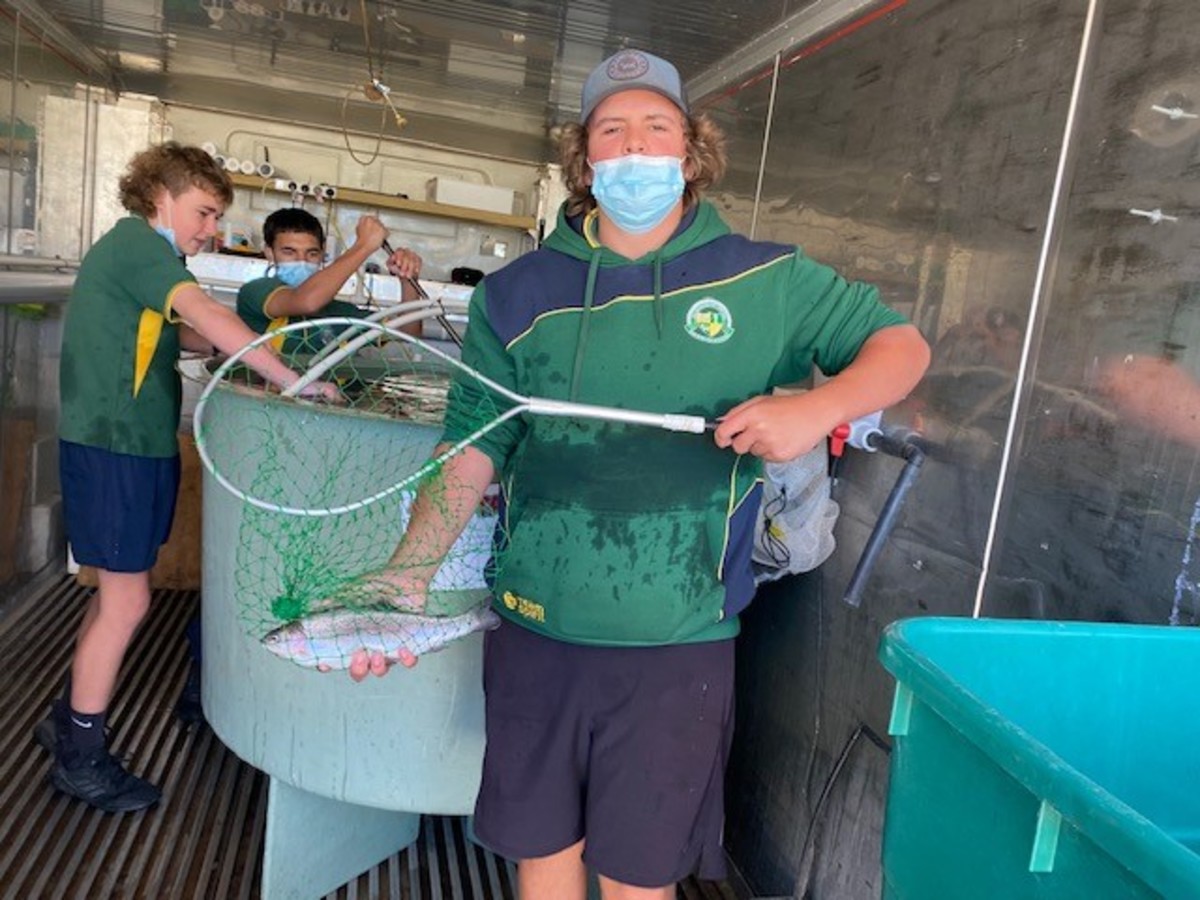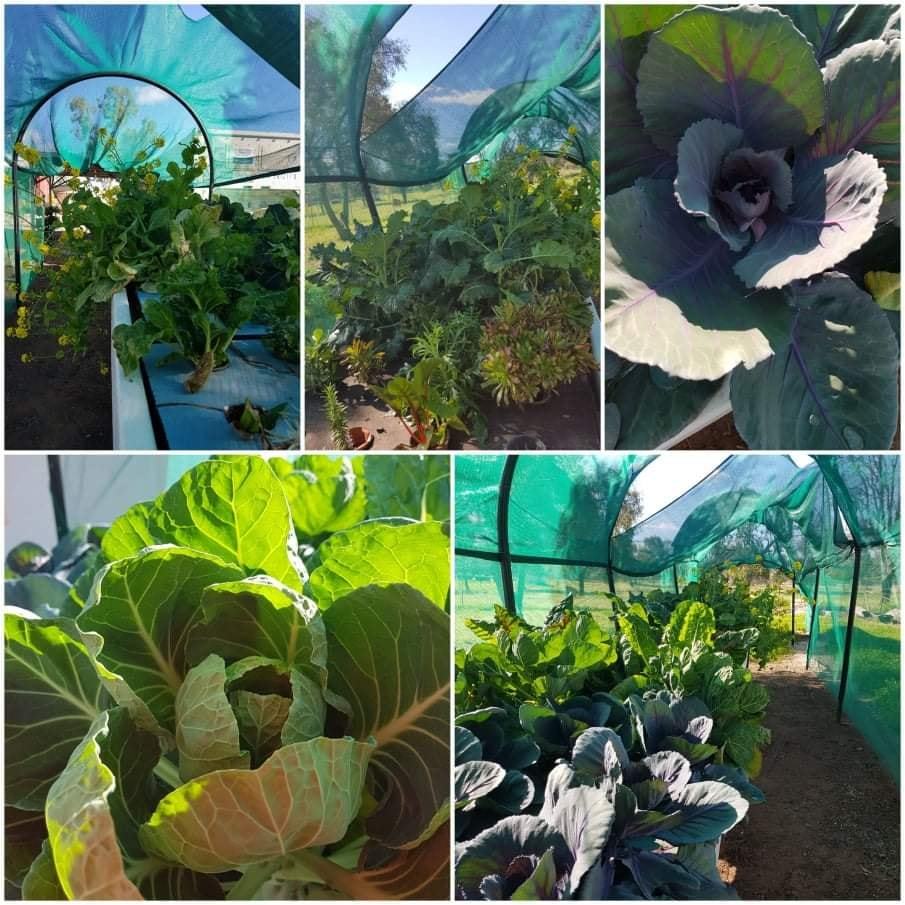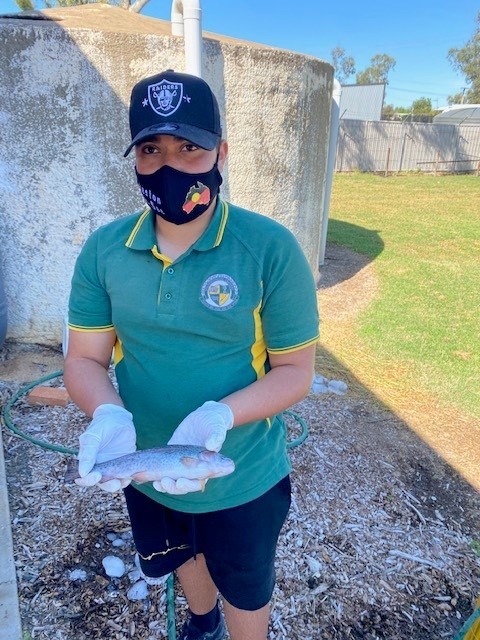GROWing student engagement across the west
Oliver Brown
20 October 2021, 10:51 PM
 Gulargambone Central School student Jayden Fardell is one of several across rural NSW learning about sustainability through his school's aquaponics program organised through the RFDS. Photo courtesy of GCC.
Gulargambone Central School student Jayden Fardell is one of several across rural NSW learning about sustainability through his school's aquaponics program organised through the RFDS. Photo courtesy of GCC. Several schools across the Western Plains are taking part in a program which provides students with hands-on learning opportunities about healthy sustainability.
The Guiding Rural Outback Wellbeing (GROW) program, an initiative of the Royal Flying Doctor Service's Alcohol and Other Drug (RFDS AoD) team, which uses aquaponics to supply the school with fresh ingredients for in-house use was began at Gulargambone Central School in 2019.
Three years later, the program now is part of curriculums at schools in Gilgandra, Trangie, Warren, Cobar and Lightning Ridge, among others. There are also plans to start at schools in Bourke, Broken Hill and Nyngan by early next year.
Aquaponics is a self-sustaining food production system which uses a large water tank where fish are raised with connected pipes pumping water through to an above-ground grow bed where plants are grown.
The waste from the fish then provides a natural fertilizer for the plants while the water is then filtered back into the fish tank.
RFDS AoD Community Engagement Officer Ursula Ryan said the GROW program was designed to connect community with healthy sustainability in times of drought.
“It offers a holistic strategy to influence the community towards positive lifestyle changes, healthier outcomes and community inclusion through the services RFDS provide,” Ms Ryan said.
“The program has been running as a pilot at Gulargambone Central School with the students visiting the site daily, checking water Ph, nitrite/nitrate and ammonia levels, harvesting fresh vegetables and plants for the school canteen and food tech class.”
The school has been doing the program for around two years now, with classes across the K-12 age groups participating.
During this time, its system has used Yabbies, Rainbow Trout and Jade Perch to grow a variety of vegetables, such as spinach leaves, bok choy and a variety of lettuces.

A selection of vegetables grown through the program at Gulargambone Central School. Photo courtesy of GCC.
Gulargambone Central School Principal Michael Spora said he was aware of the potential of aquaponics - having seen existing programs at other schools - so when the school was approached by the RFDS to be one of the first in the GROW program, he jumped at a chance to get on board.
“We’re always pretty open-minded and try to focus on anything that will engage with our kids - in my experience, whether it’s sports or agriculture, anything that’s practical where they feel part of the ownership, country kids seem to go for it,” Mr Spora said.
“The great thing is that aquaponics can fit into so many facets of our school curriculum, including our science, mathematics and HSIE faculties, and uses research that can be gathered just outside the classroom window.”
Mr Spora said the ingredients the program produces also work perfectly with the healthy lunch program he set up at the school a few years ago.
“I was sick of the kids mostly having access to bad food or being anxious for not having any at all for lunch time, so I hired a cook to make sure they have access to at least one home-cooked meal every day,” he said.
“We make all sorts of things, from spag bowl to rice dishes, and anything we produce, we somehow work into it. We try to buy as little pre-packaged food as we can.”
Mr Spora believes this has had a direct impact on the students’ wellbeing, having observed the school’s suspension period drop by about 500 per cent since the healthy lunch program began.
Several staff members from the school had to undergo specialised training from the RFDS team to get the aquaponics program set up at their school.
They were joined by staff from schools in Warren and Trangie, which were also recruited to participate in the program’s early stages.
Now in its second year of the program, Trangie Central School has been working with a small group of male students and sending everything produced home with them.
The teacher responsible for running the program Holly Anderson said their aquaponics program has been hindered from expanding locally due to COVID but she hoped to see it become a core part of the school's curriculum and beyond.
"It's been great for some of our kids to understand the process of how to look after an animal, monitoring the water and using by-product to grow vegetables," Ms Anderson said.
"Next year, we will look at incorporating it into more student learning - we would definitely like to get more young students involved - and we also want to get the community involved.
"We've already made connections with the Local Lands Council last year and they seem keen to get involved. There's even been discussion of using it as a bit of a tourist attraction."

GCC student Preston Ahsee with a harvested fish. Photo courtesy of GCC.
With so many programs already underway across regional NSW and more on the way, Ms Ryan said the program had a lot of potential for 'GROWth'.
“There are so many possibilities for this program to be spread out further over the next 10 years, reaching rural and remote communities providing vital health care and support for vulnerable communities,” she said.
Mr Spora did point out the program takes a lot of commitment and needs a group of dedicated individuals to make sure it works seamlessly with the school’s other programs.
“If I didn’t have all the people here who were mad keen on it, it would probably fall over and impede all the other programs we have got going on here,” he said.
“You’ve got to know your own school and what will work for you. So, if any other schools are looking for a way to engage more with their kids, this is a great way to do that.”
